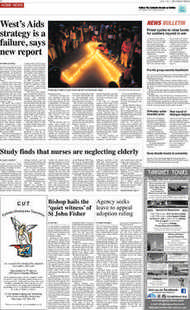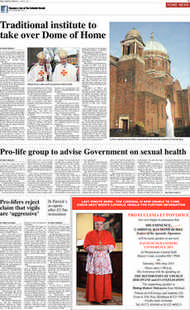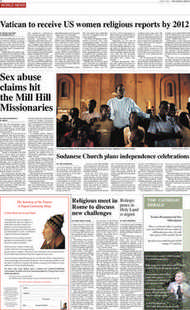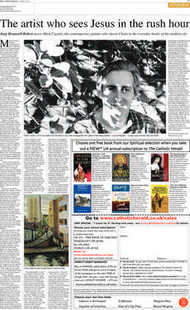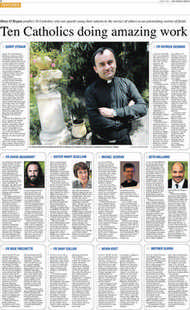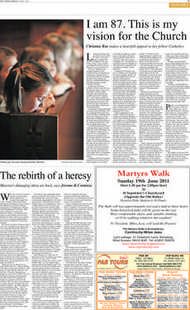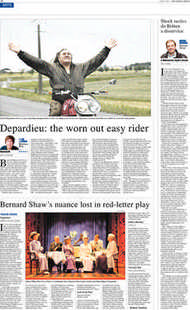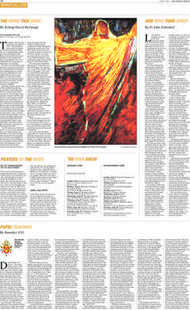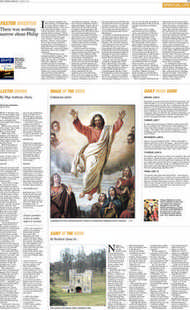Page 4, 3rd June 2011
Page 4
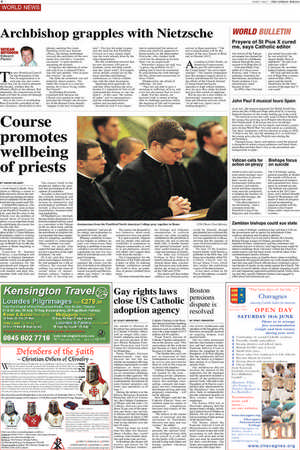
Report an error
Noticed an error on this page?If you've noticed an error in this article please click here to report it.
Tags
Share
Related articles
Vatican Backs Psychological Screening Of Seminarians
Finding The Right Men To Cope With The Priesthood
Better Late Than Never At Osterley
The Fostering Of Vocations And The Selection And Training...
Bar On Gay Seminarians Is ‘not Discrimination’, Say...
Course promotes wellbeing of priests
BY SARAH DELANEY
A ROME-based Catholic foundation is offering a course to help educators ensure the spiritual and psychological formation of candidates for the priesthood and the consecrated life.
Cardinal Elio Sgreccia, who served for many years as head of the Pontifical Academy for Life, said that the crisis in the Church over the problem of sexual abuse of minors by priests was an important factor in establishing the course, but not the only one.
The Italian cardinal is president of the Ut Vitam Habeant Foundation, which is working with the Camillianum International Institute of the Theology of Health Care to offer the course in Rome beginning in November.
Canossian Fr Amedeo Cencini, a psychologist and expert in religious formation, said the course was designed to ensure candidates for the priesthood and religious life were formed as whole people, with healthy and deep relationships both with God and others. The classes listed in the prospectus address the spiritual and psychological development of candidates.
Sexuality is discussed from the cultural, biological and psychological points of view.A section on immaturity and psychological problems will include a discussion about masturbation, homosexuality and paedophilia.
Dr Manfred Lutz, who leads the psychiatry department at a German hospital and has acted as a consultant to the Vatican on the sex abuse issue, said the formation of a candidate for the priesthood or religious life was essential, but those responsible for preparing candidates also needed to understand when a candidate was unfit.
“There are people who cannot become priests, and it’s not just a question of the right formation,” he said.
Dr Lutz said that future priests and religious needed to be well prepared for a life of celibacy, but insisted that celibacy was not the cause of sexual abuse of minors. Instead, celibacy “renders a priest free to develop his pastoral relations” and put all his energy and enthusiasm in his pastoral work, he said.
Helping candidates to learn to live happily in celibacy, he said, was much easier than helping a candidate overcome a tendency toward narcissism, a pathology he said was very difficult to eradicate even with good formation.
Cardinal Sgreccia told reporters the course was the first of its kind to be offered to Catholic educators and “if the course was good and effective, others may follow” in other parts of the world. The course was designed as two intensive, three-week seminars in a two-year period.
It is open to priests, religious and lay people who educate candidates in seminaries or religious communities, as well as to psychologists, doctors and others who support their work from the outside.
The Congregation for the Doctrine of the Faith released a letter on May 16 ordering bishops’ conferences around the world to draw up guidelines to protect children from harm.
The letter reiterated the need for bishops and religious communities to exercise special care when accepting candidates for the priesthood or religious life and to provide them with “a healthy human and spiritual formation” and a clear understanding of the value and meaning of chastity.
The John Jay Criminal College in New York last month released an analysis of clerical abuse data, concluding that most cases took place during the sexual revolution of the 1960 and 1970s.
The report said that neither celibacy nor homosexuality could be blamed, though psychiatrists have criticised the latter conclusion claiming that it is not supported by evidence showing that the majority of cases involved pubescent and adolescent boys.
On June 15 the Londonbased Catholic Truth Society, a publisher to the Holy See, will bring out a booklet called The Catholic Church and the Sexual Abuse Crisis, which also studies the underlying causes of the phenomenon.
It has been written by Dr Pravin Thevathasan, a consultant psychiatrist.
blog comments powered by Disqus



